POLITICIANS, faith and community leaders paid tribute to Parvatiben Solanki, the cofounder of the Asian Media Gr oup (AMG), publishers of Eastern Eye and Garavi Gujarat. Mrs Solanki passed away in London last Thursday (8). She was 86.
Along with her husband, the late Ramniklal Solanki CBE, Mrs Solanki played a key role in establishing AMG as one of the largest Asian publishing houses in Britain.
They began the business in April 1968, producing the flagship title, Garavi Gujarat, from their terraced house in Wembley, north London.
Today AMG publishes a range of trade and consumer titles including Asian Trader, Garavi Gujarat, Eastern Eye and Pharmacy Business, in addition to hosting gala awards dinners. AMG has offices in the UK, US and India, and also publishes titles in the United States.
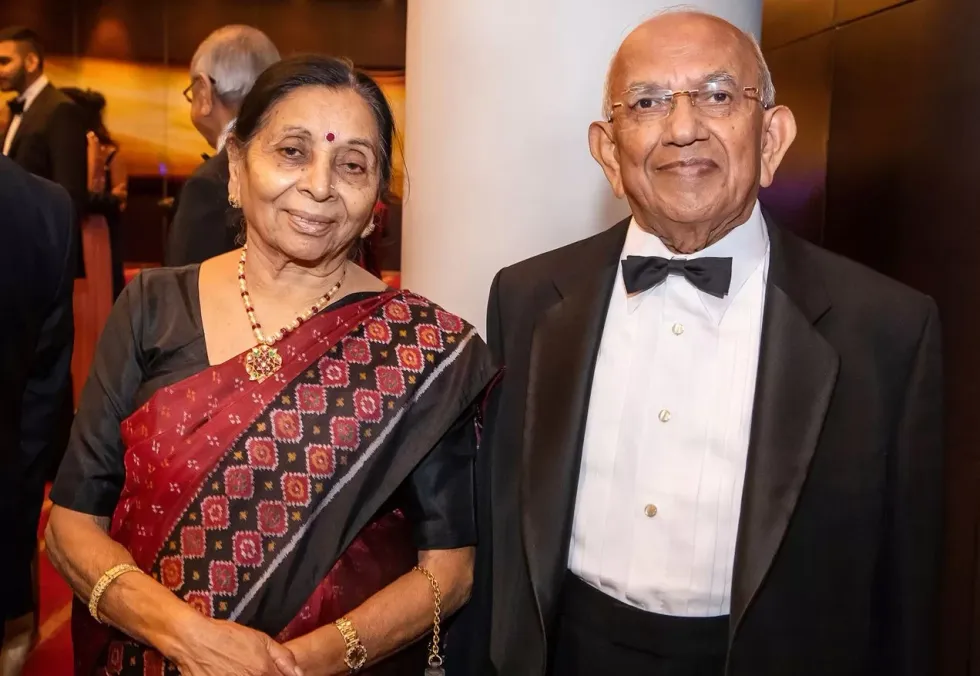
In a condolence message, the London mayor, Sadiq Khan, said, “Having come to the UK in the 1960s, Parvatiben and Ramniklal worked as equal partners, building Garavi Gujarat and later the Asian Media Group. In these endeavours, Parvatiben was not only a driving force but a true visionary too.
“It is with nothing but admiration that I will remember Parvatiben’s pioneering role in uniting and integrating London’s diverse communities. We are indebted to her for keeping the Gujarati language alive in the UK through Garavi Gujarat, and her role in pioneering the Asian Media Group, Britain’s biggest Asian publishing house.”
In his tribute, the spiritual Purushottam Swaminarayan Sanstha (BAPS), His Holiness Pujya Shri Mahantswami, said, “Parvatiben has found her divine place at the feet of Shriji Maharaj after her journey to the heavenly abode.”
Parvatiben was one of eight children born to Makanji Dulabh Champaneri (Chavda) in 1936 in Pethan in Gujarat. She attended school there and in 1955, wed Ramniklal Solanki. The couple had four children –Kalpesh, Sadhana, Smita and Shailesh. They moved to London in the late 1960s and settled in Wembley, from where Mr Solanki began Garavi Gujarat as a fortnightly for the community in the UK.
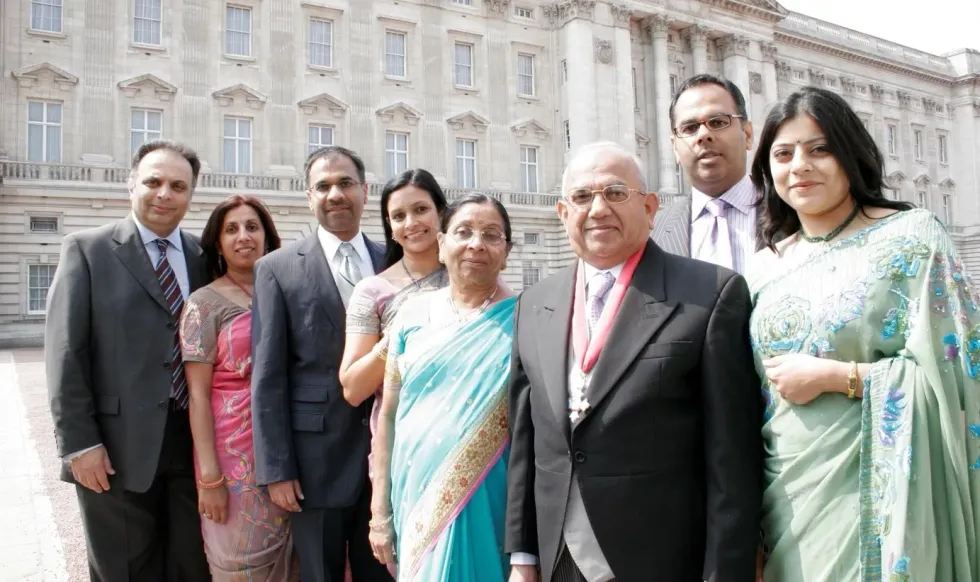
In the early days, the couple was involved in all aspects of running the publishing business – from gathering news and writing, to printing, circulation and subscription.
Mr Solanki was the public face and editor-in-chief of AMG, while Mrs Solanki played a key role in the administrative side of the business. Garavi Gujarat soon became popular and grew. The couple moved the business to an office in central London before eventually setting it up in Southwark, south London.
Mrs Solanki led other family members in playing a hands-on role in setting up and expanding the business.
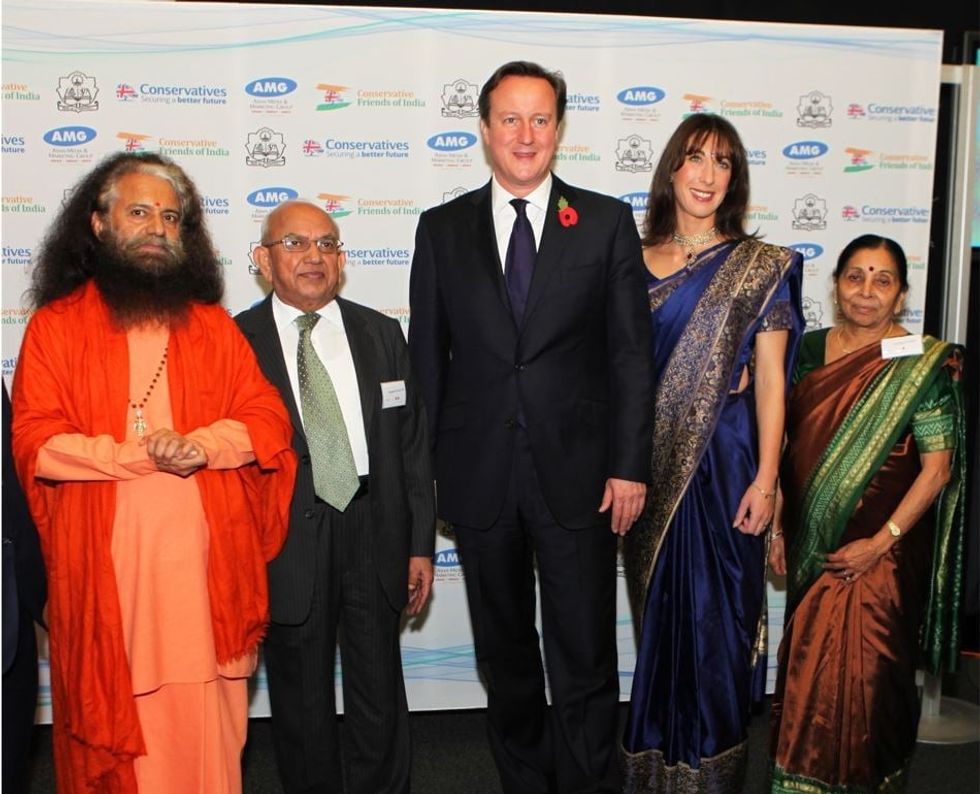
She supported Mr Solanki as he rose to become one of the foremost Asian journalists in the UK, with his insightful and fearless journalism. In recognition of Mr Solanki’s contribution to the field of journalism, the Queen honoured him with an OBE in 1997, followed by a CBE in 2007.
Lord Jitesh Gadhia paid tribute to Mrs Solanki, saying, “With its humble roots in a terraced house in Wembley, the growth of the Asian Media Group and its flagship publications Garavi Gujarat and Eastern Eye over the past five decades mirrors the journey of the wider Asian community over the same period.
“Side by side with her husband Ramniklalbhai, they were among the first ‘power couples’ of the British Asian community. “Working in genuine partnership and complementing each other, Parvatiben and Ramniklalbhai were true pioneers in their own individual right, leaving a huge legacy which is being taken forward by their sons Kalpesh and Shailesh and now involving the third generation.
“It was very sad and poignant to receive the news that Parvatiben Solanki passed away on the same day as the Queen. This uncanny coincidence will have amplified the shock for the Solanki family. Losing the head of their family on the same day as our nation lost its beloved monarch is a double blow – both matriarchs will leave a huge void. I hope the inspiration and blessings of Parvatiben and Ramniklalbhai continues to guide the Solanki family and motivates them to continue building on their parents’ powerful legacy.”
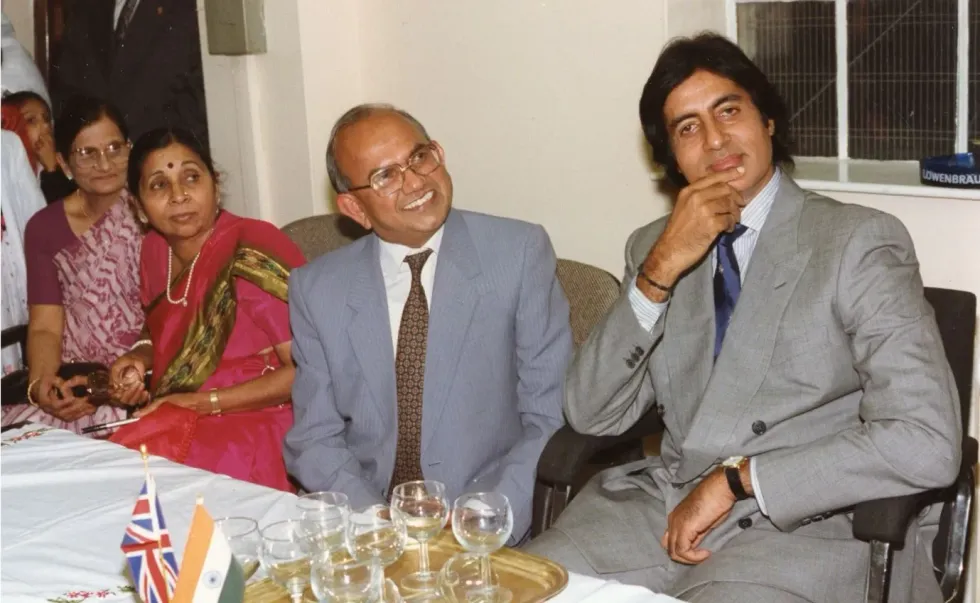
Barry Gardiner, the Labour MP for Brent North, is a close friend of the Solanki family. He said, “Over the quarter century that I have known Parvatiben, three things always stood out: the deep love she shared with her husband Ram, her air of calm decisiveness– and woe betide anyone who confused her gentle nature for weakness, she had a steely determination that should never be underestimated –and the extraordinary reverence in which she was held by her children and grandchildren.
“Occasionally, I had the privilege of sitting next to her at a dinner, and across the years, I learned that two topics of conversation were always welcome – stories about her grandchildren and how to get a little sweet white wine, always in moderation, of course!
“The story of the business empire that is the Asian Media Group is an extraordinary one, but it is one that would not exist without the constant drive and inspiration of this remarkable lady.”
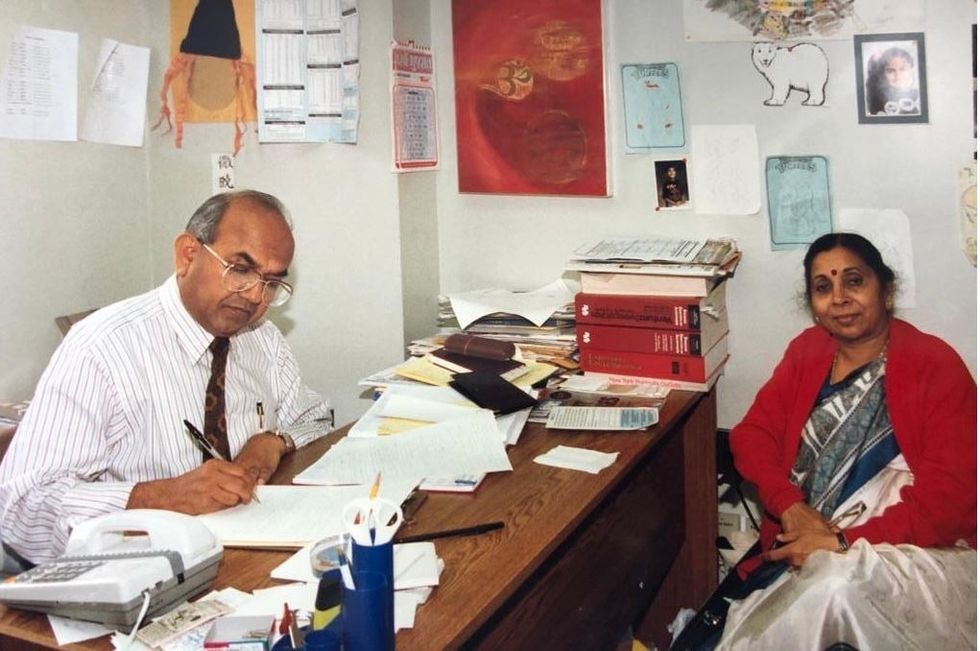
As well as being involved with the business, Mrs Solanki raised their family as it grew and was the guiding force for their sons, Kalpesh and Shailesh, who took over from Mr Solanki when he passed away in March 2020. Although she stayed at home in the latter years, Mrs Solanki remained a key decision maker in the business, and was held in high regard by AMG staff as well as the wider Asian community.
She attended AMG awards dinners with Mr Solanki and was a gracious hostess to chief guests, including Bollywood superstar Amitabh Bachchan; former prime minister David Cameron; and ex-chancellor George Osborne, as well as several secretaries of state, captains of industry and business leaders.
She was equally at ease with influential public figures as she was with younger members of staff, providing quiet words of encouragement. At their family home in north London, Mr and Mrs Solanki hosted prominent personalities from the UK as well as guests from India – they included spiritual and community leaders and literary figures.
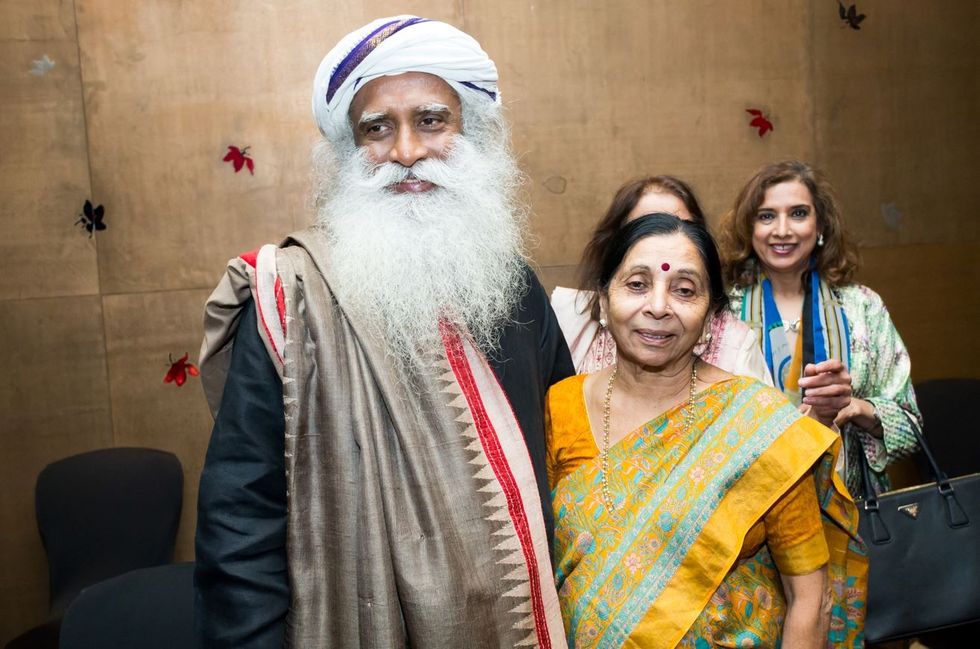
Mrs Solanki was fond of gardening and would visit horticulture exhibitions; and she has passed on her love of plants to her grandchildren. She stayed active by going for walks and enjoying the company of her great grandchild. Mrs Solanki is survived by her sons Kalpesh and Shailesh, daughter Sadhana, daughters-in-law Rashmita and Sheila, 11 grandchildren and a great-granddaughter.
A memorial service was scheduled to be held at the Swaminarayan temple in Stanmore, north London, on Thursday (15), followed by the funeral at Golders Green on Saturday (17).







 Apsana Begum
Apsana Begum











